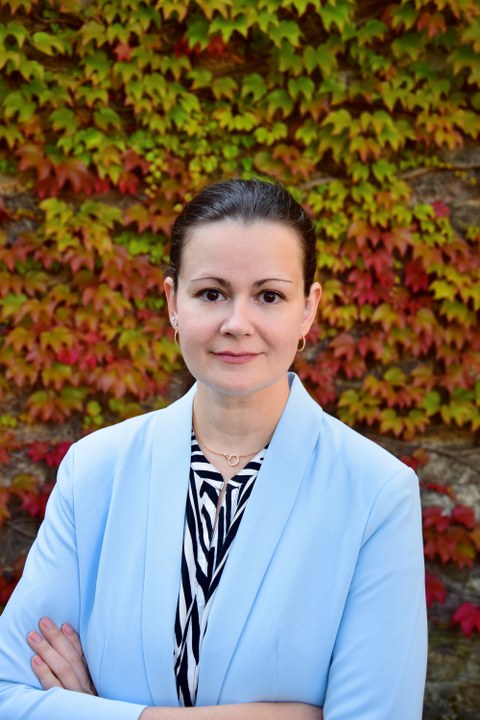Feb 08, 2023
ERC Consolidator Grant for Physicist Yana Vaynzof

Yana Vaynzof (© privat)
321 researchers from the EU and the UK have won the 2022 European Research Council (ERC) Consolidator Grants. No less than two of these award-winning research projects are located at the Technische Universität Dresden: Physicist and electrical engineer Prof. Yana Vaynzof as well as psychologist and neuroscientist Prof. Philipp Kanske will each receive funding of around two million euros over a period of five years for their projects in the fields of materials engineering and psychology/neuroscience. With the Consolidator Grant, the European Research Council honors excellent, promising scientists who have 7 to 12 years’ experience after their PhDs and whose own independent research group is in the consolidation phase.
ENGINEERING PEROVSKITE MATERIALS FOR (OPTO)ELECTRONICS
Yana Vaynzof is the Chair for Emerging Electronic Technologies at TU Dresden and the Director of the Institute for Emerging Electronic Technologies at the Leibniz Institute for Solid State and Materials Research Dresden (IFW). Her research interests focus on the development of novel semiconducting materials with particular focus on their integration into photovoltaic devices. She was already awarded an ERC Starting Grant in 2017.
“Metal halide perovskites are a unique class of materials with extraordinary properties that are perfectly suited for application in optoelectronic devices such as solar cells and light-emitting diodes” she explains. Together with her research group, Prof. Vaynzof has been investigating metal halide perovskites processed from solution over the last years, focusing on enhancing the efficiency and stability of perovskite photovoltaic devices.
The ERC-funded project, “PEROVAP – Engineering Metal Halide Perovskites by Vapour deposition” aims to develop novel methods to systematically manipulate the properties of thermally evaporated metal halide perovskites. “While solution processed perovskites have been intensively investigated in recent years, significantly less research was dedicated to their deposition by thermal evaporation – a solvent-free, scalable method of high industrial relevance,” explains Prof. Vaynzof and adds: “By developing novel engineering approaches for the vapour deposition of metal halide perovskites, we can facilitate their integration into a range of industrial applications, even beyond photovoltaics.”
